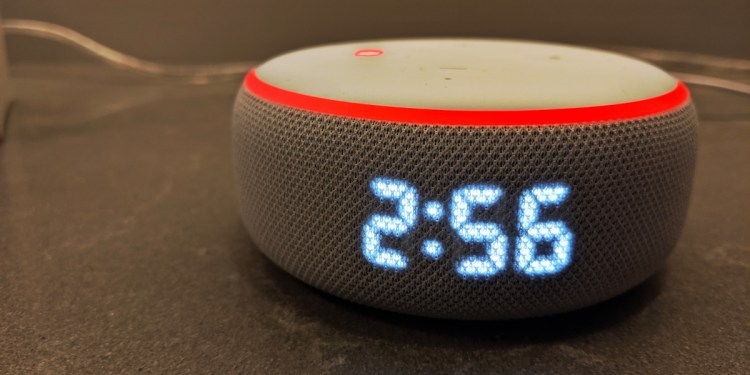Watch all the Transform 2020 sessions on-demand here.
In yet another step toward the enterprise side of the burgeoning conversational intelligence segment, Amazon today launched Alexa Knowledge Skills, a new skill type for its Alexa platform that allows employees and customers to ask questions about an organization’s data without invoking a skill name. It’s available in preview starting today, ahead of general availability in the months to come.
As Alexa senior product marketing manager Ben Grossman explains in a blog post, Alexa Knowledge Skills enable folks to ask Alexa about different types of data, including (but not limited to) organization charts, building information, events, FAQs, glossaries, product catalogs, and more. Developing such a skill requires a spreadsheet of data but no extensive coding or cloud infrastructure, and the skills are privately distributed through Amazon’s Alexa for Business or Alexa for Hospitality services, meaning that they remain accessible only on devices within an organization.
Knowledge skills enable Q&A on spreadsheet data that developers upload and map to templates. These templates correspond to different use cases, like How To (“Alexa, how do I log on to the Wi-Fi?“), Events (“Alexa, when is the next keynote?“), In-Store Assistant (“Alexa, where can I find the pasta?“), and others.
Developers who opt to use the People Directory template for their Knowledge skill can answer questions like these, as well as many others:
June 5th: The AI Audit in NYC
Join us next week in NYC to engage with top executive leaders, delving into strategies for auditing AI models to ensure fairness, optimal performance, and ethical compliance across diverse organizations. Secure your attendance for this exclusive invite-only event.
- Single fact — “Alexa, when did Mary Major start?”
- Multiple facts — “Alexa, what’s John Public’s start date and phone number?”
- Counts — “Alexa, how many software developers are in New York?”
- Lists — “Alexa, what employees are located in New York?”
- Statistics — “Alexa, what’s the average tenure for software developers?”
- Superlatives — “Alexa, who are the newest employees in New York?”
- Reasoning –- “Alexa, is Jane Doe a software developer?”
Amazon says that already, organizations including BayCare Health System and Saint Louis University are developing Knowledge skills to help students and hospital visitors find campus places and resources. “Alexa Knowledge skills bring BayCare the opportunity to customize the Alexa experience across the health system without the need for complex coding and lengthy development processes,” said BayCare Health System director of innovation Craig Anderson. “We see massive potential at our 15 hospitals, BayCare’s many outpatient centers, and our HealthHubs to deliver answers in real time directly to our customers and Team Members via Alexa.”
To start creating a Knowledge skill, head to the Alexa developer portal and log in with an Alexa developer account. Then, choose the “Knowledge” skill type, and within the Knowledge skill interface, add templates to the skill before downloading a preformatted spreadsheet for each template. Add data to the spreadsheet and upload it to the skill, and then review and test the example queries Alexa automatically generates based on the data.
Alexa Knowledge Skills build on Amazon’s previous enterprise forays. Alexa for Business and Alexa for Business Blueprints allow employees to schedule meeting rooms (with third-party services such as Cisco, Polycom, Zoom), share itinerary information (through Concur), check voicemail messages, and quickly see if meeting rooms are available, and they enable admins to control users’ capabilities through a web dashboard and publish private skills from preconfigured templates. As for Alexa for Hospitality, it lets guests at hotels and resorts ask Alexa for specific information, such as pool hours, as well as order room service, control smart devices and appliances, access their personal music and audiobook libraries, and ask the concierge for dinner recommendations using just their voice.


